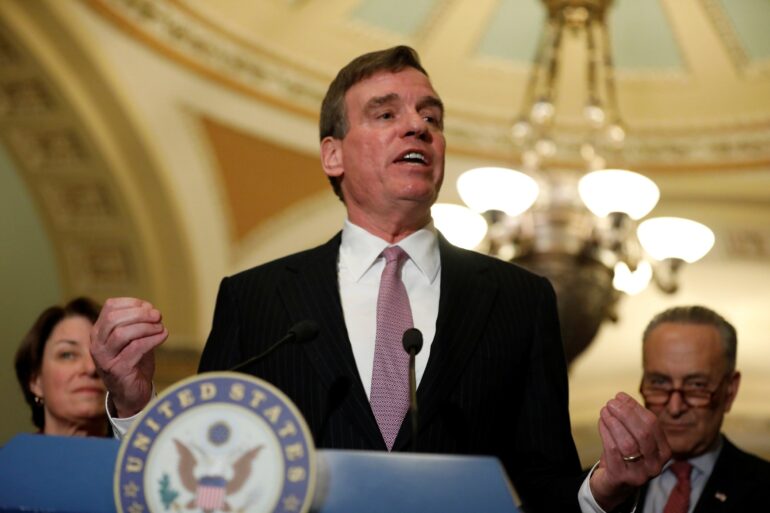TL;DR:
- Senator Mark Warner calls for Western allies to collaborate on regulating artificial intelligence (AI) to compete with China.
- China is ahead in implementing AI regulations, surpassing Europe.
- Warner emphasizes the need for national security in the technological competition around AI.
- The proposal suggests collaboration with the European Union, the United Kingdom, and Japan to establish a universal framework for regulating AI.
- The EU has passed the AI Act, and Senate witnesses have called for AI transparency.
- Warner and other senators have introduced legislation to enhance American competitiveness in the global tech arena, including AI.
- UK Minister for AI Jonathan Berry supports a unified approach to AI regulations.
- Concerns about data privacy, content bias, and ethical applications of AI have prompted calls for guidelines in Congress.
Main AI News:
In a bid to address the growing dominance of China in the field of artificial intelligence (AI), Senator Mark Warner from Virginia is calling for increased collaboration among Western allies to establish comprehensive regulations. Senator Warner emphasized the urgency of the situation, stating that China is currently leading the race and has even surpassed Europe in implementing AI regulations. It is reported that China initiated its AI development plan as early as 2017, giving it a significant head start.
According to Senator Warner, the technological competition with China is critical to national security, as the winner will wield substantial influence over emerging technologies such as AI. He expressed concerns that China may exploit AI in inappropriate ways, employing offensive strategies or spreading misinformation and deception on a global scale. To counter this, he proposed that the United States join forces with its global allies, including the European Union, the United Kingdom, and Japan, to establish a universal framework for regulating artificial intelligence.
The European Union has recently taken steps in this direction by passing a draft law known as the AI Act. Witnesses in the Senate have also called for action on AI transparency. Senator Warner’s proposition aligns with these developments and highlights the need for international cooperation in addressing the challenges posed by AI.
In June, Senator Warner, along with Senators Michael Bennet from Colorado and Todd Young from Indiana, introduced legislation aimed at establishing an agency dedicated to enhancing American competitiveness in the global tech arena, including AI. This initiative demonstrates a commitment to ensuring that the United States remains at the forefront of technological advancements.
Jonathan Berry, the UK Minister for AI and intellectual property, echoed the call for a unified approach to AI regulations. He emphasized the importance of reaching a consensus among nations during the upcoming summit, aiming for a shared understanding and strategy.
The potential of generative AI to rapidly generate responses by accessing unregulated online datasets has raised concerns about data privacy, content bias, and ethical implications. Various stakeholders, including legislators, tech leaders, and academics, have urged Congress to adopt guidelines that promote the safe and responsible development of AI.
Conclusion:
Global collaboration is crucial in regulating artificial intelligence to counter China’s dominance. This call for cooperation by Senator Warner highlights the need for national security and a unified framework for AI regulations. The European Union’s recent actions, along with legislative initiatives in the United States, demonstrate the commitment to maintaining competitiveness and addressing the challenges posed by AI. Businesses operating in the market should closely monitor these developments and adapt their strategies accordingly to navigate the evolving landscape of AI regulations and ensure compliance with ethical considerations.

